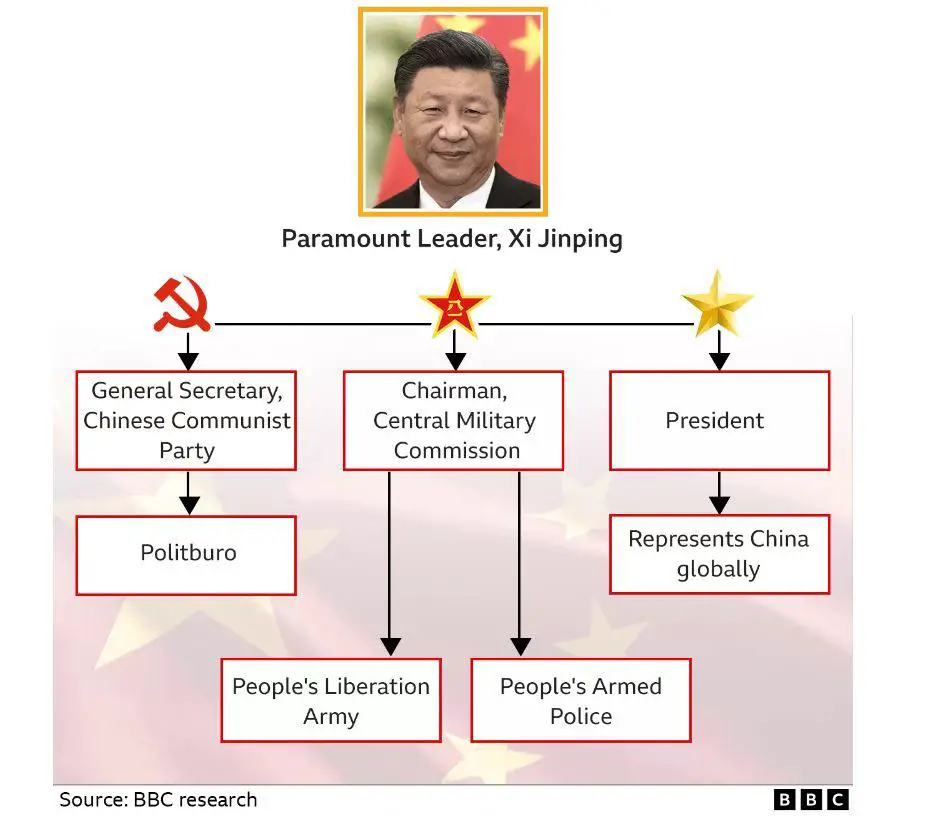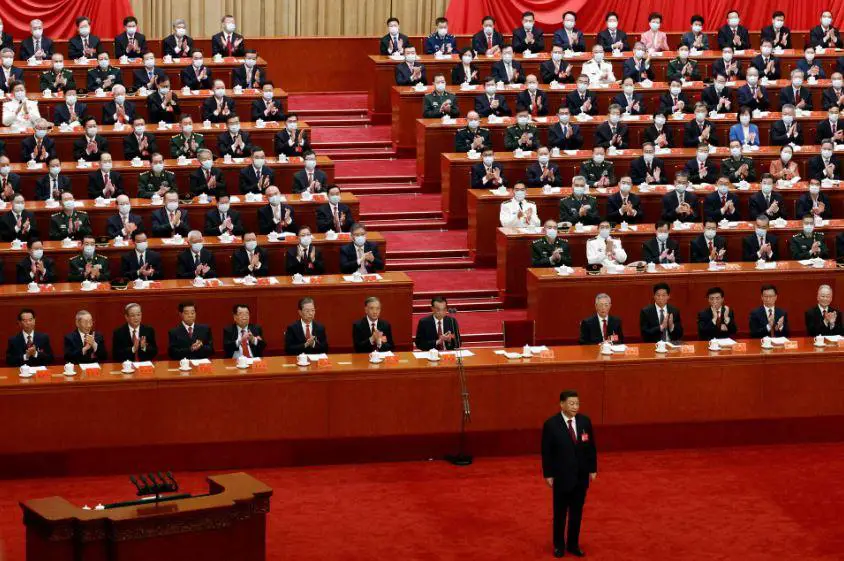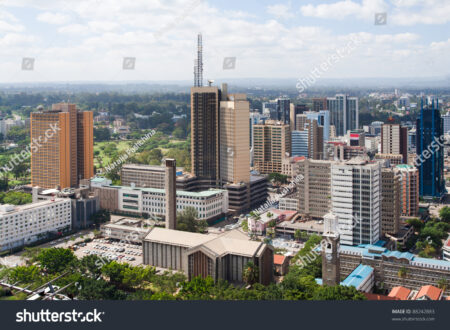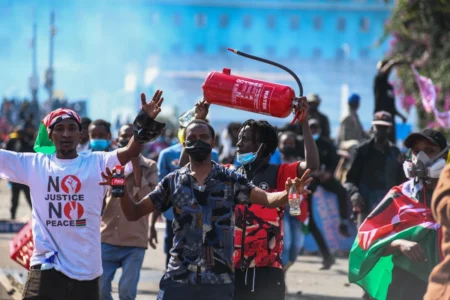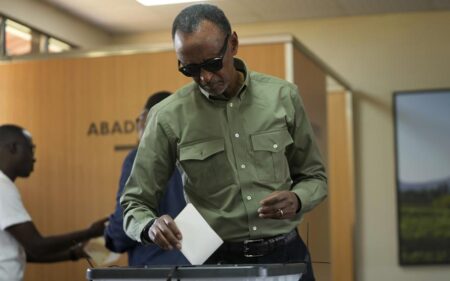China the political, economic, and ideological nemesis of the United States kicked off its 20th Chinese Communist party congress on Sunday, October 16, 2022.
The convocation of the highest governing body of the party handed the current president and general secretary of the party a third 5-year term of office and, as it appears, has implicitly allowed him to govern as president for life. The congress began with a keynote address from supreme leader Xi Jinping.
This is how the political process works in China. The Asian country does not hold elections where the popular vote or some other democratic process determines who assumes the instruments of power over the state and runs the country on behalf of the people who would have granted him or her the mandate to govern.
- The Chinese Communist Party held its 20th congress from the 16th of October 2022 to the 23rd of October 2022.
- The CCP, as it is alternatively known, gave its current General Secretary Xi Jinping a symbolic third term of office which could effectively mean that he can govern for life. If he chooses to.
- By retaining his position, Xi Jinping effectively remains the nation’s supreme leader. Xi, through this congress, has become the second most powerful person in China’s history as a modern state after Mao Zedong.
Things are little different in China. The China Communist Party which took power and was instrumental in the formation of the modern state of China in 1949 is the only party in China.
The CCP is the only political game in town and ever since chairman Mao Zedong it has changed its top brass who are selected to rule at varying intervals. Mao was chairman of the CCP from 1949 to 1976. After him came Hua Guofeng who was chairman from 1976 to 1981. Hu Yaobang followed as chairman from 1981 to 1986. Zhao Ziyang had a short-lived stint as general secretary of the party running from 1987 to 1989.
Jiang Zemin had a long run as general secretary running from 1989 to 2002. Hu Jintao followed Zemin occupying the hot seat for 10 years. He left the ropes to the current strong man Xi Jinping who has been general secretary since 2012 and is slated to occupy this same position for another 5 years. It is almost a foregone conclusion. It is also almost a foregone conclusion that he will become party secretary for life.
This 5th party congress is critical in the sense that it comes when the Asian country is at a very important crossroads. A leader has emerged in China who is arguably the most influential ever since Chairman Mao. Xi Jinping the leader at the centre of the party has a mixed legacy at this critical point. There is no question to his authority and his hold over the CCP is total. To understand the importance of this congress it is important to have some historical context. China is the foremost of economic miracles in recent history. The country has emerged as an economic superpower from its obscure and poor beginning in 1949.
The country has enjoyed very high rates of economic growth from the time of Deng Xiaoping who opened the communist state modern capitalist philosophy. The country today is the second largest economy in the world with a GDP estimated to be in the region of US$ 18 trillion. Economists and other pundits had predicted that China would eclipse the United States as the largest economy in the world by as early as 2024.
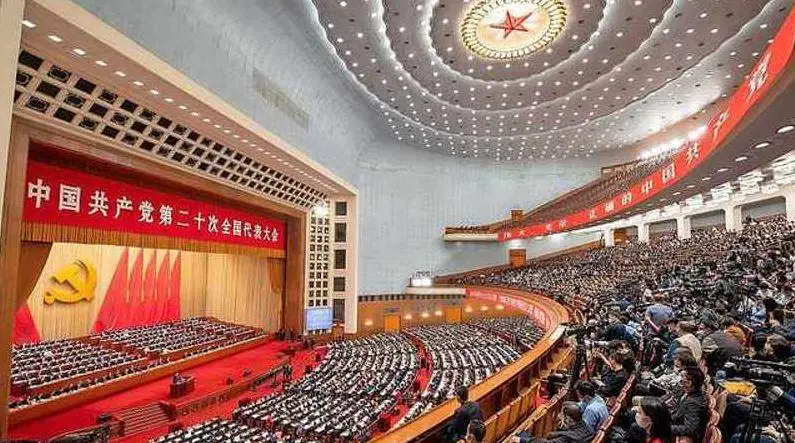
Given the current circumstances and the economic headwinds obtaining in the country this tall claim now seems a bit farfetched. Just a bit. This is the background against which president Xi Jinping presides over the party congress. China has experienced slowing economic growth.
- Xi has a near total stranglehold on the nation. His position as supreme leader means that he is General Secretary of the Chinese Communist Party. Through his position he gets to appoint the politburo of the party. He cherry-picked loyalists after this congress who are beholden to him.
- Xi’s re-appointment means he is chairman Central Military Commission which governs China’s armed forces. By his position Xi Jinping remains president of the country and represents the nation internationally.
- By maintaining a tight grip on these 3 spheres, Xi Jinping is the paramount leader of China.
In September 2022, the People’s Bank of China reported that the country had experienced slowing economic growth signalling that a recession for the Asian giant would be imminent. This is not good news for the global economy, which has been on the edge of its seat, speculating whether a global recession was on the horizon. The global recession is not on the horizon. The global recession is here.
A slowdown of the Chinese economy makes the prospect of global recession much more certain because of globalization. The interconnectedness of countries of the world for their economic survival.
Read: China sneezes, will Africa catch a cold?
Why has China’s economy slowed down?
The short answer is that the country is steadfastly and obstinately holding to its zero Covid policy. The Asian nation still implements stringent COVID testing and lockdowns. This policy stance and related unrelenting interventions have prevented the country from fully reopening and resuming economic activity which would otherwise drive its growth. You would think that with how destructive this policy stance proves, the Chinese government would relent or phase it out completely.
This is not the case.
China through its leader president Xi is pressing on with its zero Covid policy stance. Xi reaffirmed his commitment to preserving lives at the congress. Looking at the COVID statistics in China especially those relating to deaths makes the obstinate stance by the government more disingenuous if not downright absurd. China’s official statistics on Covid deaths puts them at 5,000 whereas the US has over 1 million.
The US has fully re-opened its borders and is learning like the rest of the world to live with the pandemic.
The Covid deaths statistics are obviously questionable, however, to save face which is very important in Chinese culture takes precedence over making a policy U-turn. Such a move would be an admission of failure on the part of the state government and something unthinkable going into a party congress.
How should the world view this? Well for starters, the continuance of the zero Covid policy means that China’s economy will either slowdown in the future or continue growing at a decreasing rate.
The domino effect from China’s economy slowing down is that it will adversely affect just about every other country which relies on China trade for its own economic well-being. The United States relies on China for at least 20% of its imports. A slowing China will certainly not be good for the United States.
- At the opening of the Chinese Communist Party Congress Xi reiterated his commitment to “work diligently” and to place the lives of people first. This was a loosely veiled reference to his government’s maintenance of the zero Covid policy which many economists have concluded to be the reason why China’s economy is slowing down.
- China’s economic slowdown increases the likelihood of a global recession. The CCP congress has come at a time when China is not only grappling with a slowing economy but also a housing crisis that has stemmed from an oversupply of housing stock and slowing demand.
- China is also experiencing pockets of protests.
To the south of China, Australia is heavily dependent on China. The country, Australia, reportedly depends on China for at least 60% of its international trade. The same can be said about countries in Africa who not only depend on China trade for their economic well-being but have become increasingly dependent on Chinese credit in recent years.
It has also been reported that China is now a bigger source of credit for African countries than the IMF and the World Bank. What is obvious from all of this is that China as a trading partner is not easy to replace. At least not in the short run. Having said this, the maxim rings true that if China sneezes, the world will catch a cold, including the mighty United States.
Read: Global economy will not handle further interest rate hikes
The signal coming from the CCP congress is that the world should not expect a change in policy against Covid anytime soon despite its important ramifications for the global economy. On the domestic front, the economy of China has not been doing well. Ever since its economy started to slow down, unemployment has been on the uptick, with at least 20% of young people in China said to be unemployed.
China is also in the throes of a housing crisis, with several large property developers on the brink of financial ruin and or bankruptcy. The case of the Evergrande Group is the most prominent. The property company rose to prominence by developing massive housing projects fueled by the availability of cheap credit from the government first and from private lenders.
The urbanization of China through the migration of citizens to urban areas drove demand for apartments. Developers eager to satisfy this seemingly unending demand decided to borrow the money to build skyscrapers.
The music for the property developers stopped when there was a slowdown in the number of people migrating to urban areas. This affected their revenues to the extent that they began to default on their loans en masse. The problems in the housing markets became systemic in the sense that the credit used to finance the development of housing had come from overseas investors and lenders.
Now there was suddenly no demand for housing in a market where there is an oversupply. Default resulted. It is not uncommon to visit cities in China and find ghost cities of towering skyscrapers that are unfinished and overgrown. There have also been rumours of protests against the government’s rigid stance against COVID. The word protest is not taken kindly in China. In fact, it is considered profane.
Read: World Bank says global economy in danger, is it?
These are some of the signals coming from the ongoing CCP congress. They stood out because they have a direct bearing on the rest of the world, especially in terms of economic trajectory going forward. What also stood out from the Congress is President Xi’s commitment to unifying China.
This was a thinly veiled reference to the possibility of China taking over Taiwan by force if necessary. We are in for some interesting times ahead.
